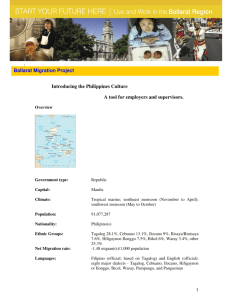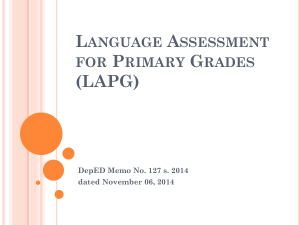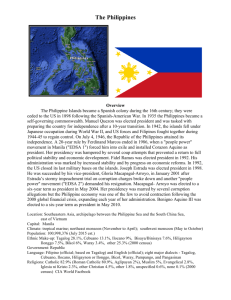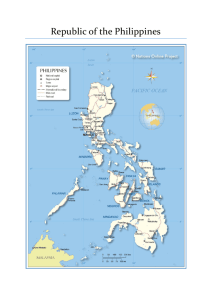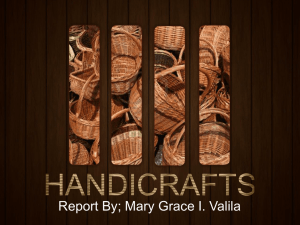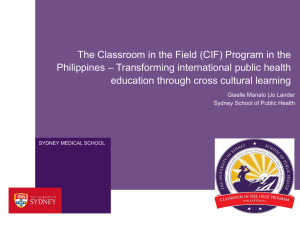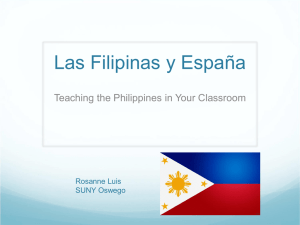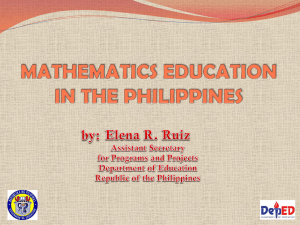Selection of languages included
advertisement
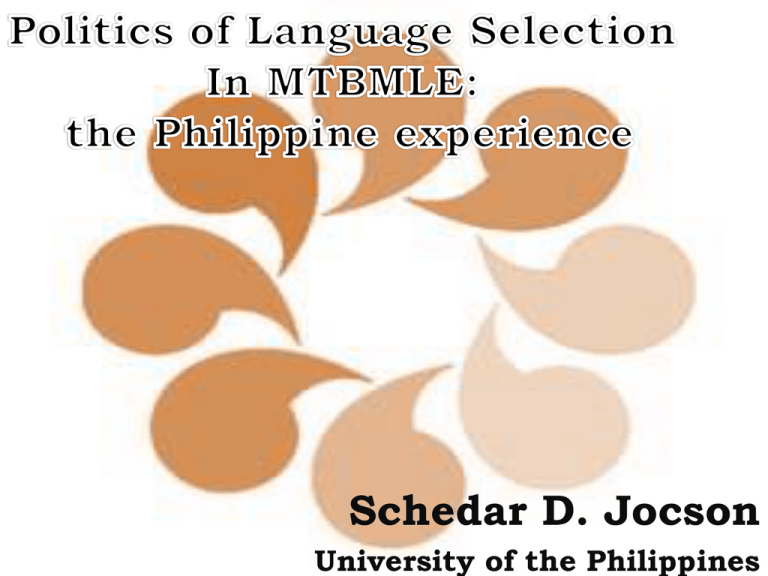
Schedar D. Jocson University of the Philippines The study aims to show that… Language selection is a political assertion and domination Language choice in the medium of instruction, specifically in the Philippines, has been affected by global concerns on education MTBMLE is a mechanism for students’ learning capacities to be fully enhanced yet such language policy has divided pro-Filipino academicians Selection as A process of choice no absolute freedom because politics is affected by different ruling ideologies or perceptions What hotel will I be getting? What airline will I be getting? What language will I be using? Limited option Ideology of the medium of instruction in the Philippines Debate started during the American colonial period Spanish colonial period’s language policy was clear Pro-vernacular versus pro-English In the Philippines, why is it that the MOI is at the core of the debates in the education sector? Delivery vis-à-vis content Cultural literacy Reasons people lobbied for the MTBMLE and its ideological perception Cognitive development Linguistic human rights | Linguistic democracy Inclusive Education EFA Movement Department Orders creating MTBMLE DO 74, s.2009 “Institutionalizing Mother Tongue-Based Multilingual Education” Basic Education System Reform Agenda (BESRA) Lingua Franca Project Lubuagan Experiment DO 16, s.2012 SIL, Save the Children Selection of languages included Selection of languages included Iloko Pangasinense Kapampangan Bikol Tagalog Waray Cebuano Hiligaynon Chabacano Maranao Tausug Maguindanaoan Selection of languages included Iloko Pangasinense Kapampangan Bikol Tagalog Geographic division Waray Cebuano Hiligaynon Chabacano Tausug Maranao Maguindanaoan Selection of languages included 6.9 M 1.6M 1.9 M Iloko Pangasinense 4.7 M Kapampangan Bikol Number of users/speakers Tagalog 2.5 M 21.5 M Waray 15.8 M Cebuano Binisaya 5.7 M Hiligaynon 293 L 900 L Tausug Chabacano Maranao 776 L 1.M Maguindanaoan Selection of languages included 6.9 M Iloko Ibanag 1.6M 1.9 M 500 L Pangasinense 4.7 M Kapampangan Bikol Inclusion of Chavacano Tagalog 2.5 M Masbatenyo 21.5 M 539 L Waray Capiznon Kiniray-a 639 L 378 L 5.7 M Cebuano Hiligaynon 293 L 900 L 15.8 M Tausug Chabacano Maranao 776 L 1.M Maguindanaoan Selection of languages included Languages in areas where Muslim Filipinos are dominant Chabacano Tausug Maranao Maguindanaoan Multilingual education in Philippine society DEPED’s preparedness The national language as the medium of instruction Economics Lack of the democratic process Globalizing world Will MTBMLE help develop the national language? Filipino as a product of all languages in the Philippines. If all languages are being used, hence, Filipino will be useful. Will regional languages kill the national language? Salamat!!! Schedar D. Jocson University of the Philippines
